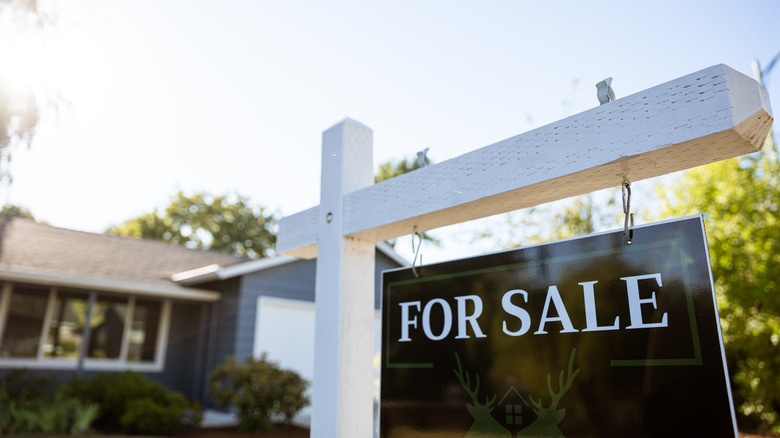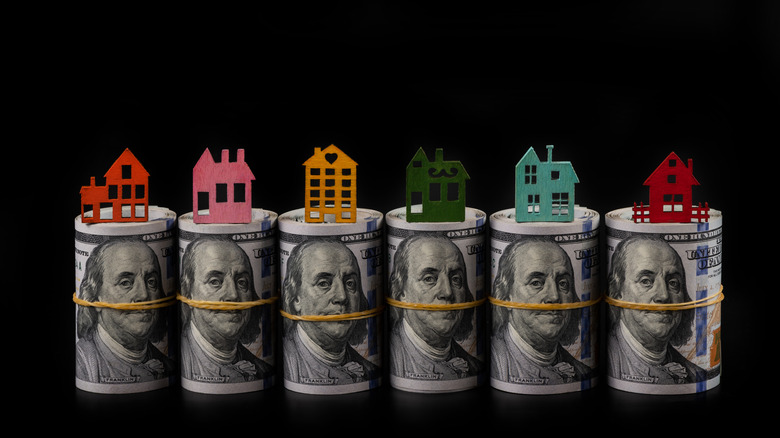A 15-Year Mortgage Rate In 2025 Will Make You Pay Big Time
Every new home purchase comes with numerous important decisions. However, the method of completing the transaction in order to take ownership of your new home is among the most crucial action items. The National Association of Realtors (NAR) reported that, in 2024, 74% of homebuyers financed their purchase, meaning that most buyers must face the all-important question of how long their mortgage repayment term should be. While the shorter your mortgage term the cheaper your overall loan becomes, it's not always financially feasible since selecting a shorter mortgage term also ensures that you pay significantly more every month, potentially leaving you house poor in the process. Specifically, Bankrate data shows that, as of early October 2025, 15-year mortgages have a national average rate of 5.66%, while a 30-year term comes with a 6.37% figure. Based on other prevailing data points, a 15-year loan will cost the average buyer (a $410,800 home price, per FRED, with an 18% down payment, per NAR) around $250 more per month.
Choosing your mortgage term length is all about cash flow and priorities. A mortgage that lasts half the duration will obviously see you pay off the balance much faster. But the key benefit is significant savings on interest: Nearly $100,000 in the difference based on the above figures over the life of each loan. But it also comes with serious opportunity costs elsewhere. You'll likely find it hard to save aggressively for retirement, let alone have extra funds for other discretionary spending in the present.
A hybrid approach might be the better solution
Choosing an appropriate loan term for your lifestyle is entirely personal, but for savvy homebuyers, the choice may not be as dramatic as it appears. A mashup of these approaches might be the better solution for most home buyers. Instead of committing to a 15-year mortgage and risking default or even foreclosure if you fall behind, you might instead opt for a 30-year loan in which you can pay off at a higher rate. Taking out a 30-year mortgage and adding the additional difference (say, $250) to your payment on your own each month can reduce your payoff timeline by around four years.
While that's not a number that might jump off the page, the nearly $60,000 you'll save in interest should certainly gets your blood flowing. This option allows for flexibility in your finances, too. For example, if you get laid off, falling back on your emergency fund and shrinking your monthly mortgage payments back to the original contract terms while looking for work can provide a crucial lifeline. You might also consider a smaller supplement that's easier to maintain. An extra $100 each month will still save you just under $30,000, and cut your repayment term by almost two years. Cut that again to just an extra $50, and you'll still save a notable $15,662 in interest while shaving off a year of repayments.

